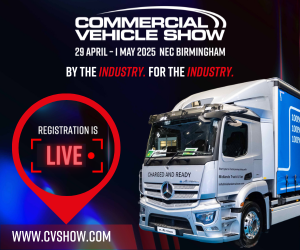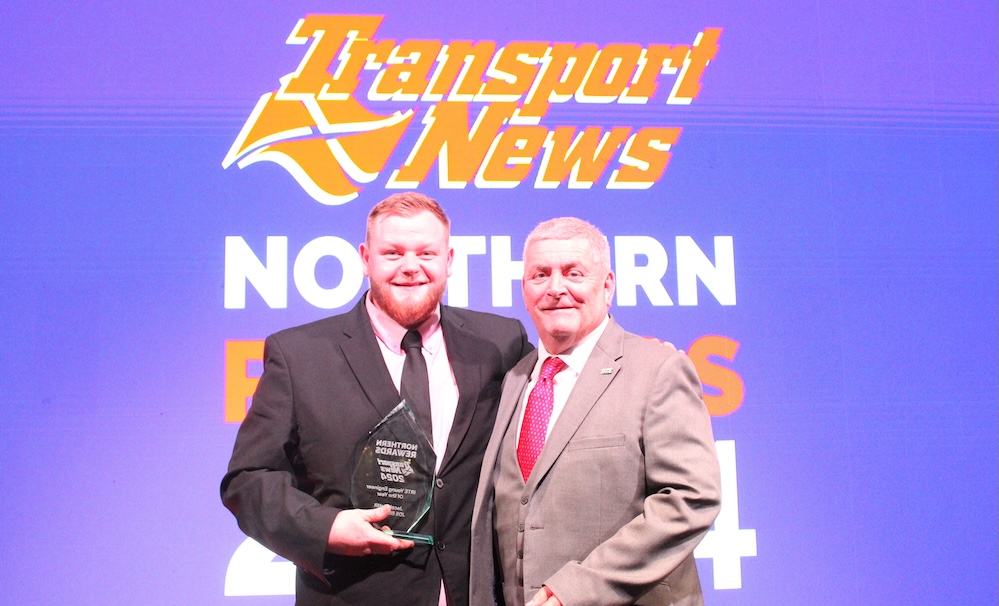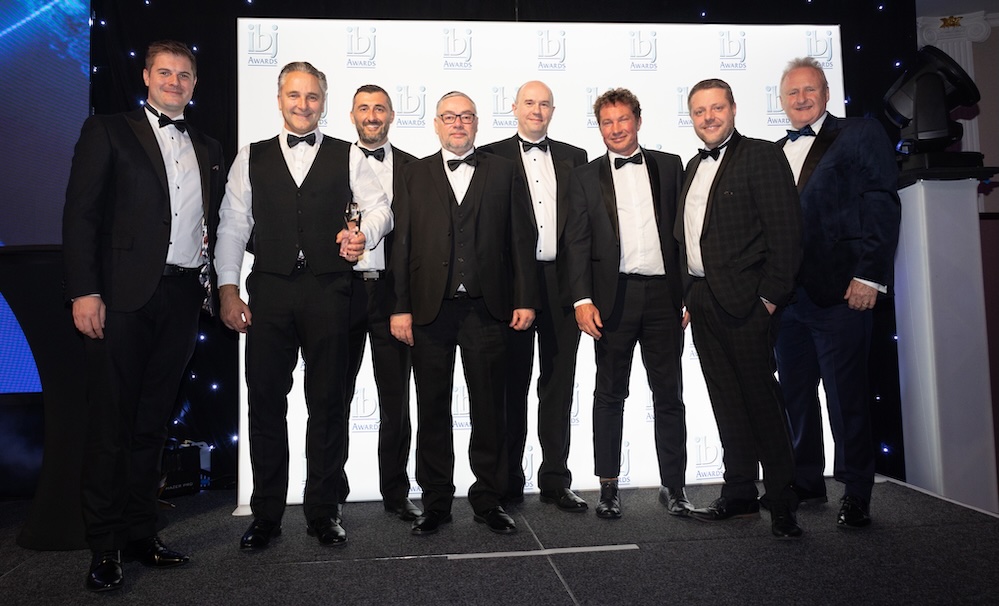An unrelenting commitment to the decarbonisation of its entire product range has earned Mercedes-Benz Trucks UK a prestigious industry accolade – for the second year running!
Sales Director Stuart Jeggo stepped up to collect the HGV Manufacturer of the Year trophy at last week’s (8 December) GreenFleet Awards 2022, which were staged at the British Motor Museum in Gaydon, Warwickshire.
Not only did Mercedes-Benz Trucks UK win the same title at the corresponding ceremony in 2021, but the previous year’s award went to FUSO Trucks – FUSO, like Mercedes-Benz, is part of the Daimler Truck family.
GreenFleet has been championing the transition to low-emission transport for two decades, its portfolio of events, magazines, websites and newsletters providing a leading communications platform for senior decision makers from across the sector.
“With three new battery-electric trucks announced this year, and one (the Next Generation FUSO eCanter) coming in 42 different configurations, Mercedes-Benz Trucks continues to push the boundaries of what’s possible in HGV electrification,” declared GreenFleet Events Manager Colin Boyton.
“With more electric trucks entering UK fleets this year, plus an eConsulting service that supports customers on their eMobility journey, it is a worthy winner, once again, of our HGV Manufacturer of the Year award.”
Since its success last year Mercedes-Benz Trucks has made further, huge strides in the development of its battery-electric offer, setting the first 19- and 27-tonne eActros on UK roads and taking several orders from domestic operators for the low-entry eEconic chassis, which entered production in July.
Meanwhile, big names like Bidfood and Speedy Services are among the latest to add 7.5-tonne FUSO eCanters to their fleets. The eCanter was the world’s first fully electric light-duty truck to enter series production and is already well proven – the first right-hand drive examples entered service with DPD, Hovis and Wincanton more than four years ago.
The eActros employs an innovatiove eAxle and comes with three (eActros 300) or four (eActros 400) lithium-ion batteries, each of which has a capacity of approximately 112 kWh. It offers an impressive combination of range, payload capacity and driving dynamics. In rigid form, the 4×2 eActros 300 has a range of approximately 330km, while the 6×2 eActros will cover around 300km on a single charge. The eActros 400, which only comes as a 6×2 rigid, offers a 400km range.
The eActros 300 is also now available as a 4×2 tractor unit with 220km range, while for those needing more the eActros LongHaul with 600 kWh battery capacity – which enters a ‘real world’ customer testing phase next year – will cover around 500km on a single charge.
In October Mercedes-Benz Trucks unveiled an electrically-powered, construction-specification Arocs prototype with mixer body that has been developed in collaboration with PAUL Group and Meiller.
And at the previous month’s IAA show in Hanover, it launched the Next Generation FUSO eCanter, which will be available in gross vehicle weight classes from 4.25-8.55 tonnes, with ranges of up to 200km.
Mercedes-Benz Trucks has also introduced a comprehensive eConsulting service to support customers on their eMobility journey, and in the UK is partnering with EQUANS to identify their charging infrastructure needs and the related costs.
Its focus is not restricted to battery-electric technology either, as the manufacturer’s ‘two-pronged’ approach will also see the introduction in 2027 of the first heavy trucks powered by hydrogen fuel cells. Mercedes-Benz Trucks is working with bp to open the UK’s first HGV hydrogen refuelling station in 2025 and up to 25 more will follow by 2030.
Stuart Jeggo commented: “Our fantastic achievement in retaining GreenFleet’s HGV Manufacturer of the Year title reflects Mercedes-Benz Trucks’ continued leadership in the development of sustainable road transport technologies.
“As part of the global Daimler Truck organisation we’ll only be selling CO2-neutral trucks by 2039, a year earlier than the UK Government has said it wants sales of all non-zero-emission HGVs to cease.
“However, this must be a gradual journey for our industry, with no ‘cliff-edge’. The overwhelming majority of trucks right now are powered by diesel, and that will remain the case for some time to come.
“This is why we recently announced the third generation of our popular OM471 12.8-litre engine, which improves fuel consumption by up to 4%, and why we’re also working with customers to increase the use of hydrotreated vegetable oil (HVO), as this can reduce their carbon emissions by up to 90%.”






